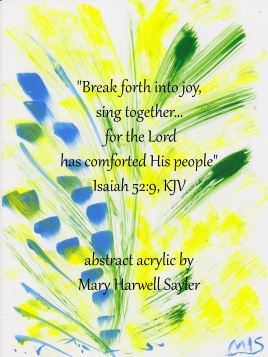In a world of noise and miscommunication, haiku draws poets and busy readers with a quick-sketch of memorable moments. Like senryu, the traditional version of this syllabic verse form contains seventeen syllables in three lines of 5/7/5 syllables, respectively.
Spring comes silently –
slow as a caterpillar,
quiet as an owl.
That said, poets presently writing in haiku or senryu often shorten the form, crafting mini-poems or micro-poetry to fit into the limited space provided on some social media sites.
When I’m gone
will you walk alone
in the rain?
Regardless of length, haiku traditionally draws attention to an unexpected, refreshing, or other remarkable moment in nature during a particular season, while senryu turns attention to some aspect of human nature. Either of these syllabic verse forms can also inspire and enlighten, making readers aware of something they might not otherwise notice.
How do I love thee?
Let me count Your ways of love
in waves of longing.
Occasionally, haiku leans toward humor, whereas senryu is apt to be philosophical, introspective, ironic, or even argumentative. But let’s not quibble for those distinctions do not always draw a definitive line.
Please do not hold my
haiku against me. Use my
villanelle instead.
If you want to try your poetic hand at writing syllabic verse, remember: An important factor in writing these and other types of poetry is to observe, experiment, and have fun! Play with words. Reconsider ideas.
Clocks do not tell time:
Their hands move in sign language,
sharing opinions.
In our Christian Poets & Writers group on Facebook, we often adopt the Haiku form in a focus on God. Here’s an example of what we call Highku.
Thunder and the still
small Voice! Who but God could be
both in all seasons?
Research and set a goal of learning more about the things you do not like and the things you do. For my book of syllabic verse, my goal has been to provide a variety of short poems with subjects you’ll most likely relate to and maybe even want to explore in your own experiences of Haiku Happening. If so, and if you enjoy the book enough to read it again and/or recommend it to a friend, I hope you’ll leave a starry review. Thanks and blessings!
Poems and post from Haiku Happening by Mary Harwell Sayler
